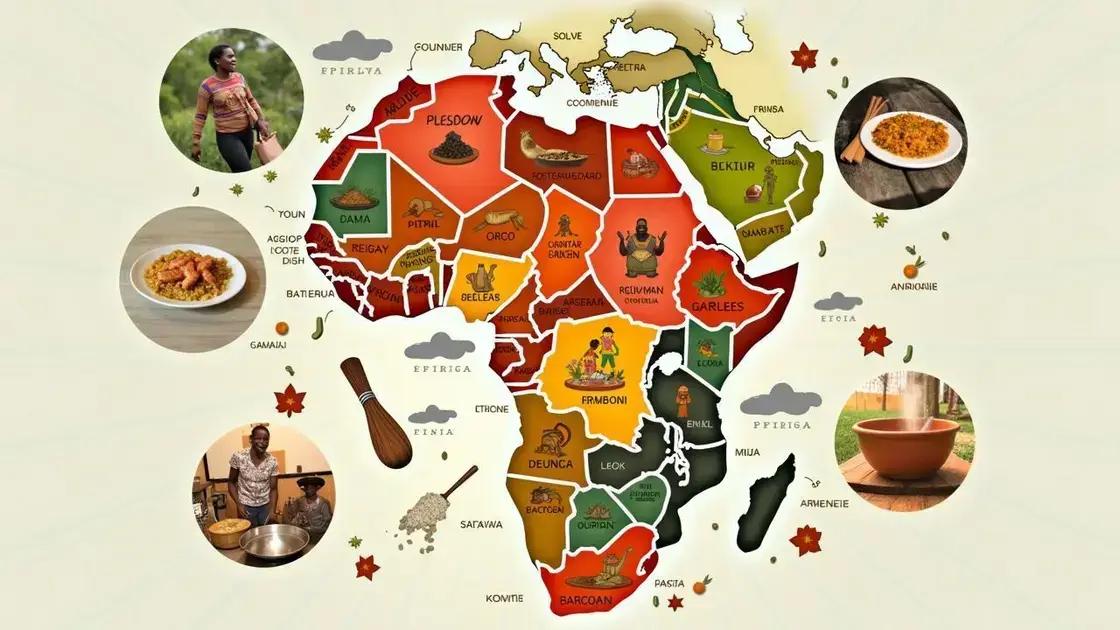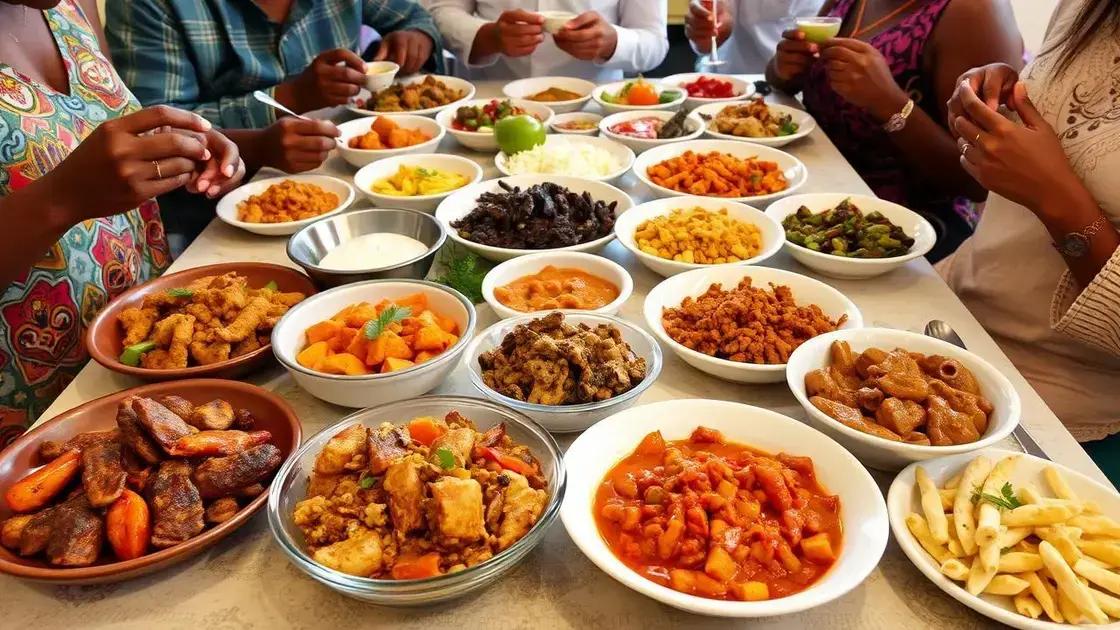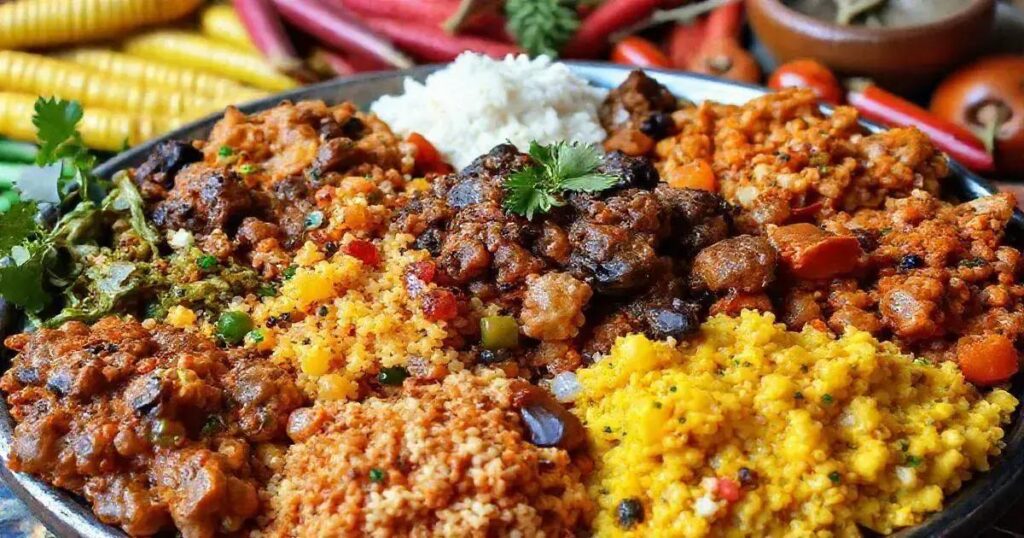To know if an African recipe is right for you, explore the diversity of African cuisine by evaluating your personal taste preferences, trying small portions, and being open to new flavors and ingredients.
Are you curious if an African recipe is right for you? With the rich and vibrant flavors of African cuisine, it’s essential to explore how these dishes can fit into your lifestyle. From spicy stews to flavorful grains, each recipe brings a unique taste experience. In this article, we will delve into the diversity of African cuisine and help you evaluate your personal taste preferences, ensuring that you find dishes that resonate with your palate.
Understanding African Cuisine Diversity

African cuisine varies significantly across the continent, reflecting a rich mixture of cultures, traditions, and histories. Understanding this diversity is essential for anyone looking to explore the flavors of African dishes. Each region has its unique ingredients and cooking methods that create distinct culinary experiences.
Regional Variations
Each region of Africa has its specialties. For instance, North African cuisine is heavily influenced by spices such as cumin, coriander, and saffron, resulting in dishes like tagine and couscous. In contrast, West African dishes often feature bold flavors from peanuts, spicy chili peppers, and palm oil, highlighting stews such as egusi and jollof rice.
Common Ingredients
Many African recipes use similar ingredients, but their combinations make them unique. Staple foods like rice, millet, and cassava are prevalent, yet the way they are prepared varies. For example, injera is a fermented sourdough flatbread from Ethiopia, while bunny chow is a South African dish consisting of a hollowed-out loaf of bread filled with curry.
Influence of Culture and Traditions
Culture plays a significant role in African cooking. Food is often central to ceremonial occasions, family gatherings, and communal celebrations. Traditional recipes may be passed down through generations, creating a strong connection to ancestry and heritage.
As you explore various African recipes, keep in mind these cultural nuances and the seasonal ingredients that can influence flavor. This knowledge will help you appreciate the diversity and find dishes that resonate with your taste buds.
Evaluating Personal Taste Preferences

When trying out an African recipe, it is crucial to evaluate your personal taste preferences. Understanding what flavors and textures you enjoy can help you choose the right dishes. Some people prefer mild flavors, while others seek out spicy and bold options.
Identifying Your Flavor Profile
A good first step is to think about the types of food you usually enjoy. Do you like sweet, savory, spicy, or sour flavors? African cuisine has a wide array of spices and ingredients that can either excite or challenge your palate. For example, if you enjoy spicy food, you might appreciate dishes using chili peppers or harissa.
Trying Small Portions
When exploring new recipes, consider starting with small portions. This way, you can taste different dishes without committing to a full serving. Experimenting with side dishes can also introduce you to new flavors and textures. Sampling various dishes will help you discover what aligns with your tastes.
Be Open to New Experiences
Be willing to step outside your comfort zone. Some flavors may surprise you. African cuisine often features unique combinations that can be delightful. For instance, sweet and savory pairings, such as pineapple and spicy meats, are common and can be fun to try.
Discussing your preferences with friends or family who have experience with African dishes could provide valuable insights. They may recommend recipes that suit your taste or suggest new variations based on the specific flavors you like.
Discovering the Right African Recipe for You
Understanding how to know if the African recipe is right for you involves exploring the rich diversity of African cuisine and evaluating your personal taste preferences. By identifying your flavor profile and being open to new experiences, you can enjoy the vibrant array of dishes the continent has to offer.
As you embark on this culinary journey, remember that trying small portions and sampling various recipes can enhance your understanding of the flavors that resonate with you. Through exploration and interaction with these diverse dishes, you can find your favorites and expand your palate.
Embrace the opportunity to discover delectable African recipes that align with your tastes, creating memorable meals that reflect the continent’s unique culinary heritage.
FAQ – Frequently Asked Questions about African Recipes
How do I know if an African recipe is right for me?
To determine if an African recipe suits your taste, consider evaluating your flavor preferences and trying small portions of different dishes.
What are some common ingredients in African cuisine?
Common ingredients include rice, millet, cassava, spices like cumin and coriander, as well as meats, vegetables, and legumes.
Can I adjust the spice levels in African recipes?
Yes, many African recipes can be adjusted to suit your spice tolerance. Start with a smaller amount of spice and increase it to your preference.
Are there vegetarian options in African cuisine?
Absolutely! Many African dishes feature beans, lentils, vegetables, and grains, offering delicious vegetarian and vegan opportunities.
How can I be more adventurous with trying new African dishes?
Be open to experimenting with new flavors and combinations. Attend African food festivals or dine at African restaurants to expand your palate.
What should I consider when cooking African dishes for the first time?
Consider your taste preferences, have all necessary ingredients ready, and follow the recipe closely for the best results.













